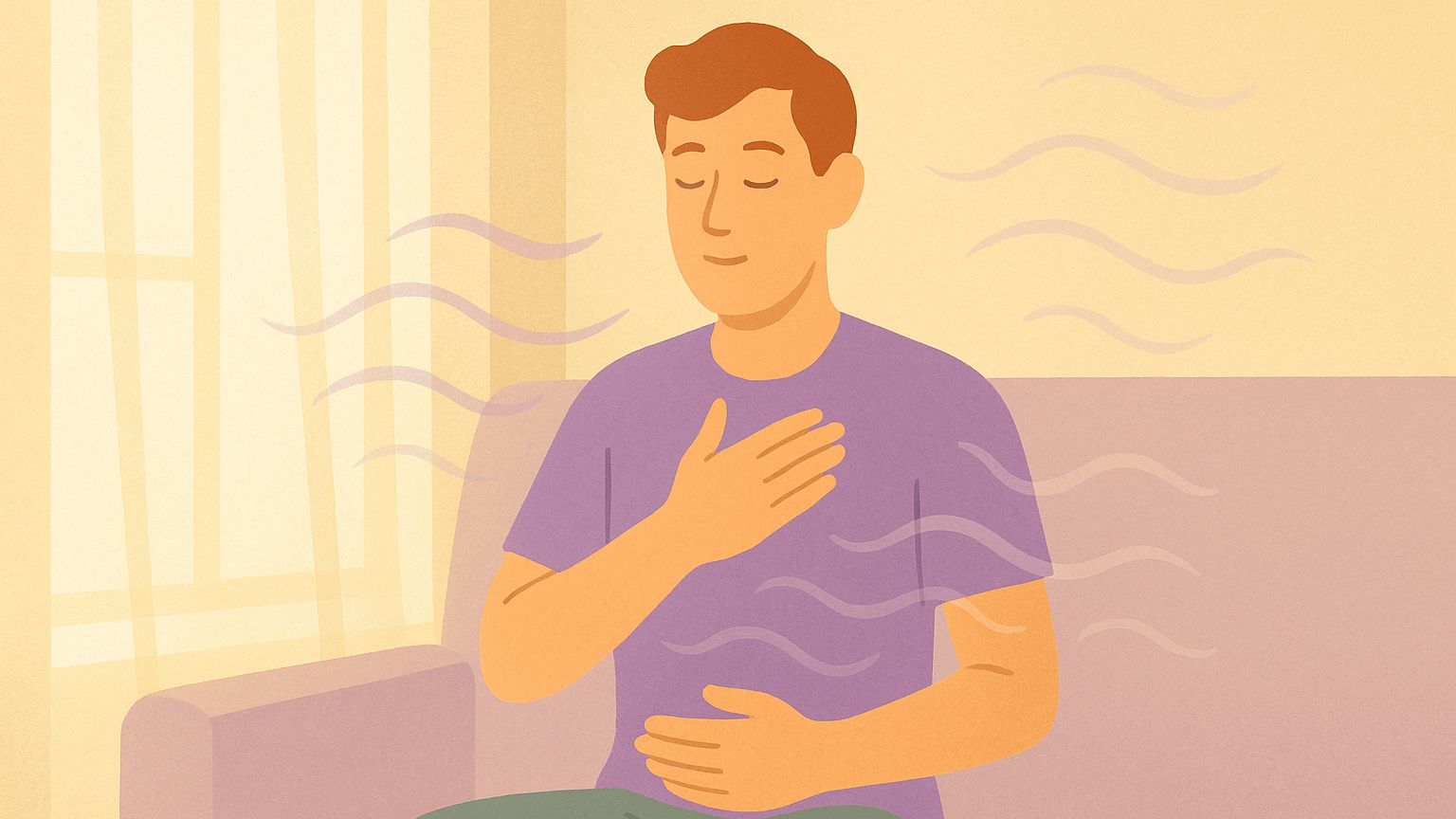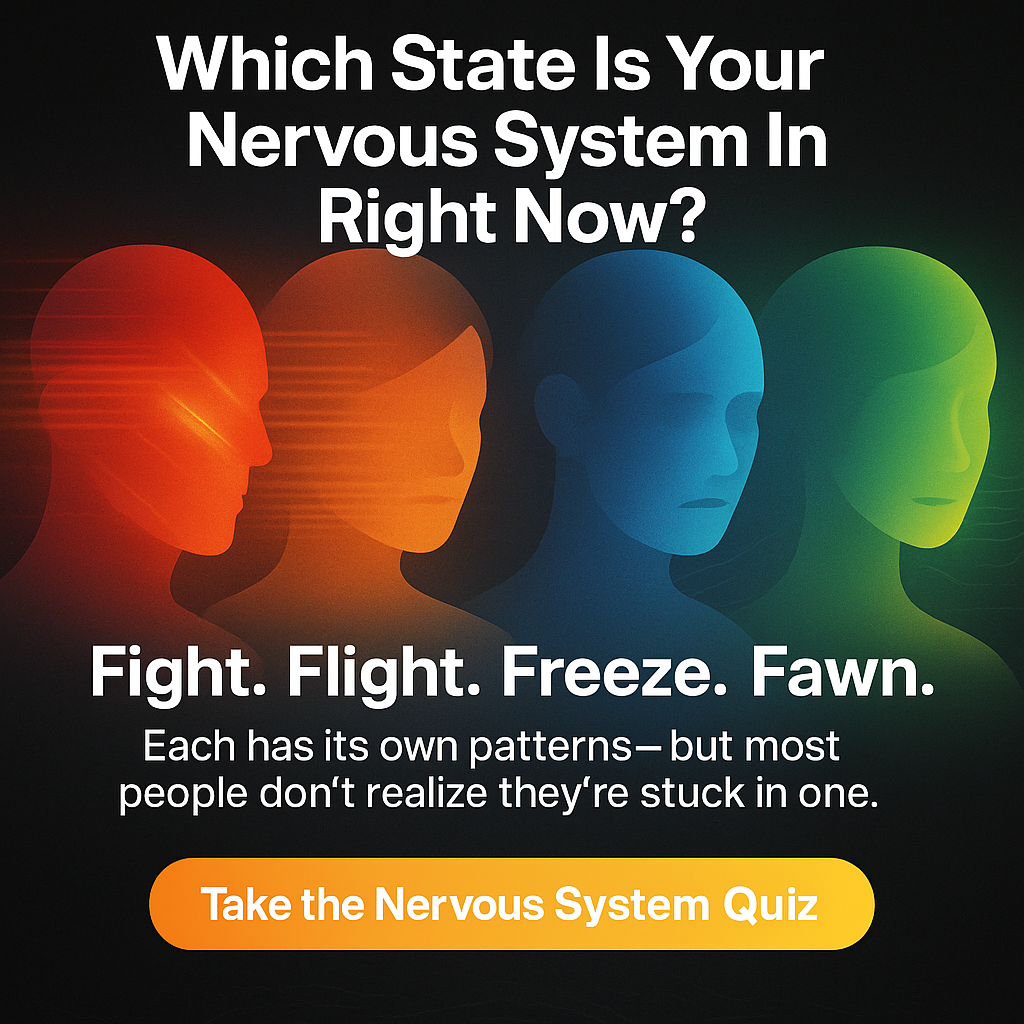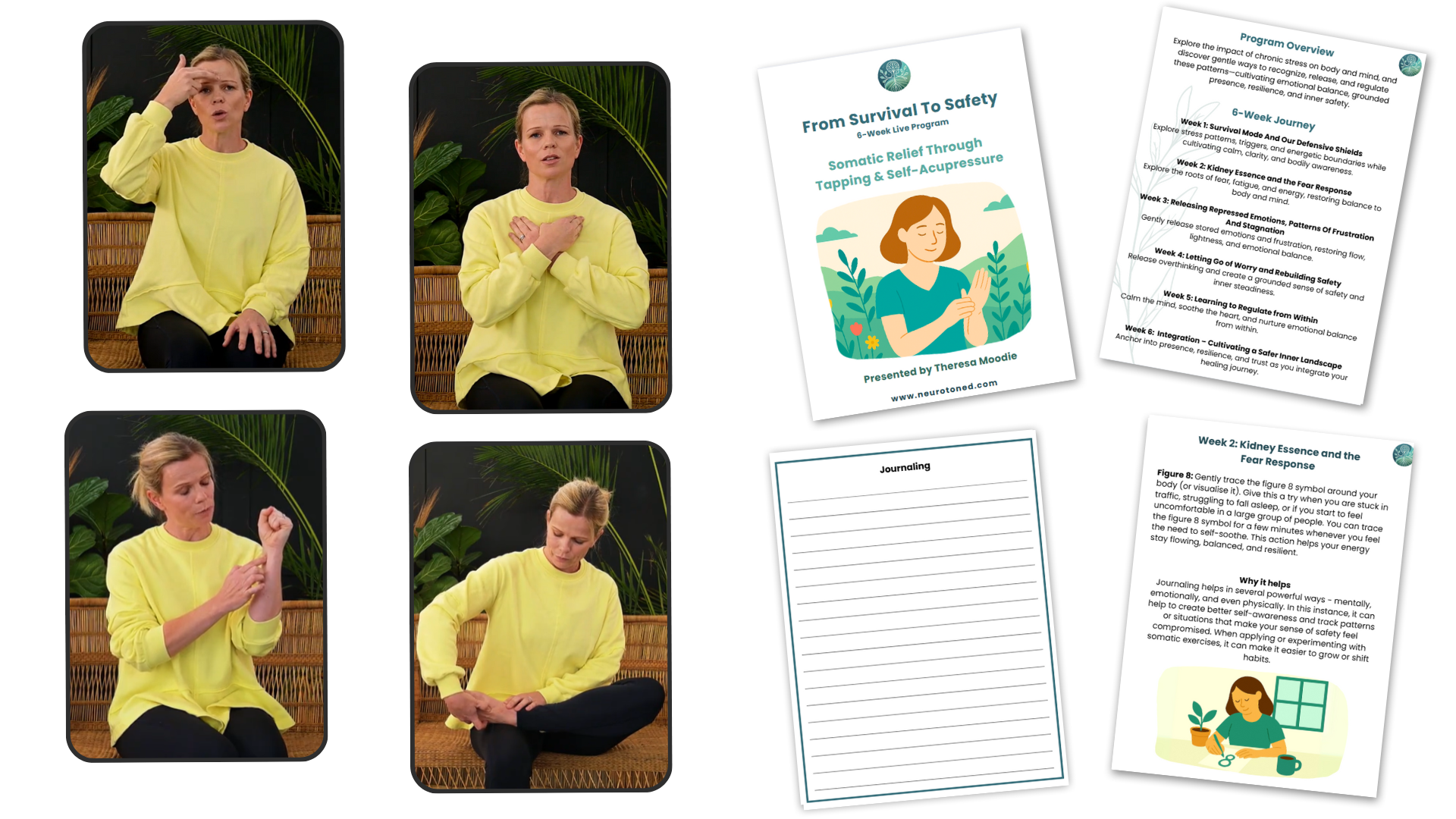
Why Your Body Goes Numb During Stress (and Gentle Somatic Ways to Reconnect)
Why Your Body Goes Numb During Stress
If your body sometimes feels numb, floaty, or far away during stressful moments, you’re not broken. This is your nervous system doing what it’s designed to do—protect you.
Before we continue, you can take the Stress Loop Quiz to discover how your body responds to stress and which state you spend the most time in.
Quick Answer
Numbness is a freeze response that happens when your system feels overwhelmed. Instead of fighting or fleeing, your body shuts down to conserve energy and avoid further overload. It may feel like fog, emptiness, or losing touch with sensations. Gentle somatic work helps you re-enter the body safely, at your own pace.
Understanding the Freeze State
When stress becomes too much, your body’s dorsal vagal system activates. Heart rate slows, digestion pauses, and awareness pulls inward. This can show up as:
- Tingling or full-body numbness
- Feeling detached from reality or emotions
- A heavy, tired, or “frozen” body
- Difficulty speaking or moving
This isn’t weakness—it’s your body’s ancient way of surviving. Many people also notice that when vagal tone is low, numbness appears more often, since the vagus nerve helps regulate the balance between calm and shutdown. You can explore this connection further here.
If you’re someone who often feels “ready to jump out of your skin for no reason,” your system might be cycling between high alert and shutdown. Learn why this happens through this article.
Gentle Somatic Tips To Reconnect
1. Start With Contact
Place your hands on your arms, thighs, or face. Notice texture, warmth, or pressure. This simple act helps your brain map safety through touch.
2. Anchor Through Sight
Look around the room slowly. Name three colors and three shapes. This brings the body out of internal focus and back into the present.
3. Breathe With Weight
Place one hand on your chest and one on your belly. Inhale softly through your nose, exhale with a sigh, and feel your weight sink into the chair.
Pairing this with gentle Vagus Nerve Massage Techniques can deepen the message of safety and help sensation gradually return.
4. Small Movement, Big Change
If your body feels frozen, start small—roll your wrists, wiggle your toes, or stretch your neck. As safety builds, gentle shaking or walking helps release energy stored during the freeze.
5. Invite Warmth
Wrap yourself in a blanket or sip something warm. Temperature is a powerful signal to the nervous system that it’s safe to soften.
Reconnecting After Trauma
If you’ve experienced trauma, numbness can become a default state. This is common, and it can shift. Healing begins by moving in and out of connection gently, without force.
For a compassionate guide through this process, see: How To Reset Your Nervous System After Trauma.
When sensations return, they may bring emotion or fatigue. Allow rest. Safety comes from pacing yourself.
A 7-Day Gentle Reconnection Plan
Day 1-2: Practice simple touch and breath before bed.
Day 3-4: Add orienting—look around, name what feels safe.
Day 5: Try a short grounding walk, noticing textures and temperature.
Day 6: Combine breathing with small movements.
Day 7: End the week with a short, full-body awareness scan.
If you’d like a structured daily rhythm to follow, try the 10-Minute Nervous System Reset for Overwhelm, which includes a repeatable daily practice to bring you back into connection.
When Numbness Meets Modern Life
Numbness isn’t always about big trauma. It can also come from chronic overstimulation—like endless Zoom calls or tight deadlines. The brain protects itself by tuning out sensations.
If you relate, read for small, fast resets that help your body find balance again.
Common Sticking Points
“I can’t feel anything.”
Start with noticing what you can perceive—even the absence of sensation is awareness.
“I get emotional once I feel again.”
This is your body thawing. Slow down, breathe, and rest often.
“Why do I feel both wired and numb?”
That’s the body being stuck between fight/flight and freeze. Gentle grounding helps integrate both.
If you’d like a companion read, explore How To Improve Vagal Tone Naturally For Anxiety.
More Gentle Reads
- The Connection Between Psychological And Physical Pain
- Vagus Nerve Breathing For Trauma Recovery
- Quick Nervous System Relief for Zoom Fatigue
FAQs
Why does numbness happen during stress?
Your body may enter a freeze response to avoid overwhelm. It’s not weakness—it’s biology.
Is this dangerous?
Usually no, but if numbness lasts for long periods or affects daily life, consider talking with a healthcare or somatic professional.
Can exercise help?
Gentle movement may help as long as it feels safe and not forced.
Will this go away?
Yes, many people find that somatic grounding and consistent nervous system care help sensations gradually return.
What if I can’t do these exercises?
Start with imagining movement or touch. Even that sends signals of safety.
Can therapy help?
Yes. Somatic or trauma-informed therapy can guide this process safely.
Disclaimer: This article is educational and not medical advice. If you have health concerns, consider speaking with a qualified professional.
Discover Your Vagal Tone
Find out how dysregulated your nervous system is and get your personalized roadmap to feeling calm, energized, and in control


